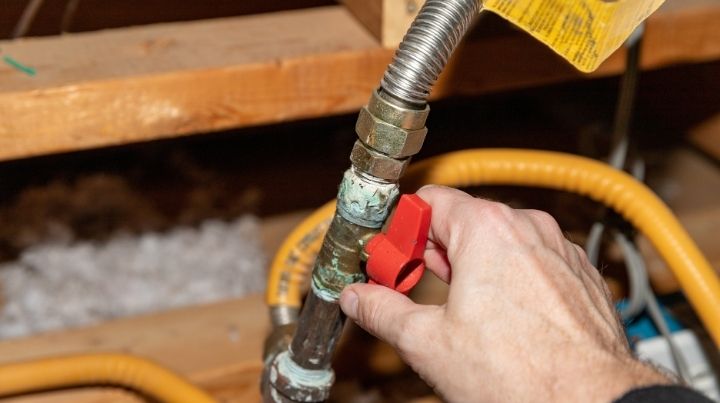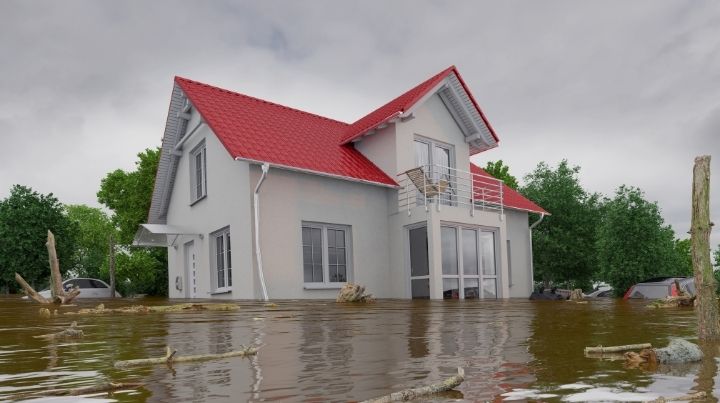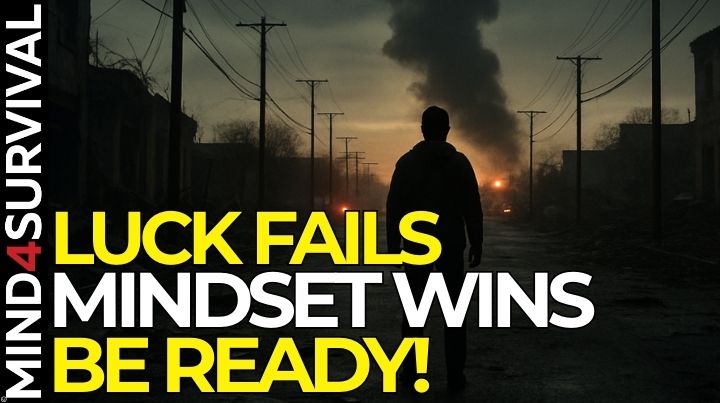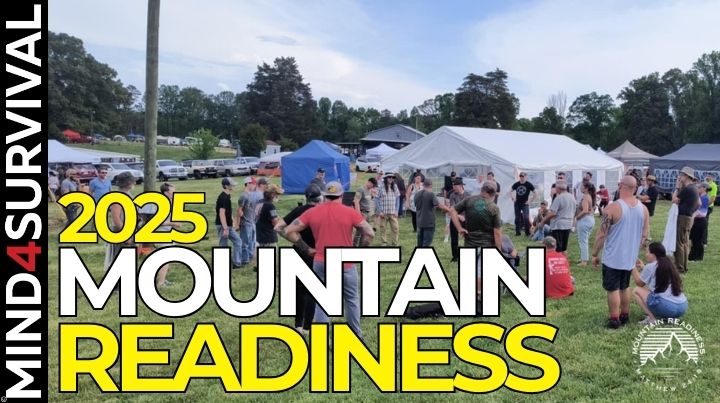What Should You Do AFTER a Hurricane?
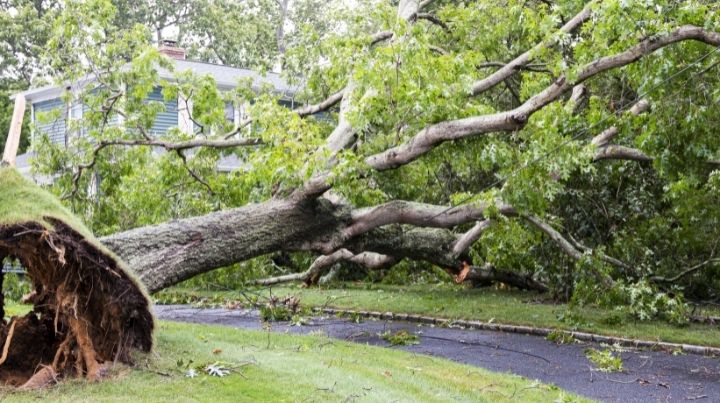
The internet is filled with advice about what to do in preparation for a hurricane. But what should you do AFTER a hurricane? In truth, more people die in the aftermath than during the storm itself.
According to the Washington Post, many of the fatalities are indirect results of the storm and occur after the rain stops falling and debris clean-up begins.
- Falls
- Machinery accidents
- Heart attacks from stress and exertion
- Electrocution
- Car accidents
- Open flames
- Carbon monoxide poisoning from generators operated indoors
- Drowning
This list doesn't include the many hazards from floodwater that can cause deadly infections.
So, What Should You Do AFTER a Hurricane?
The safest thing you can do after a hurricane, in most cases, is to stay indoors. Obviously, this is not the case if floodwaters are rising or other dangers make your shelter unsafe. However, most of the deaths occur outside during the aftermath of the storm.
This means you will need to be prepared to hunker down with supplies like water, food, and something to do to pass the time until it's a bit safer outdoors. Check out our article about prepping for a hurricane for more information about what you need to have on hand.
Be Ready to Make Small Repairs.
The ability to make some minor repairs can allow you to stay safely inside your home. For example, being able to temporarily patch the roof from inside the attic or cover a broken window with plywood can protect you from the elements while waiting for a better time to make your way outdoors.
Know How to Turn Off Your Utilities.
Knowing how to turn off your utilities ahead of time can also help to keep you safe if you are going through the steps of what you should do after a hurricane. This can help to prevent accidental electrocution, flooding due to damaged pipes, and explosions from gas leaks.
It's a good idea to keep a written copy of instructions for shutting off your utilities just in case you are unable to access the internet. Service providers will be extremely busy handling the most urgent issues first, so you might be on your own for a while.
If you are unable to shut off your utilities safely, this is an important exception to the “stay home” rule.
Here are some quick tips for each utility.
Electricity
This is the easiest utility to turn off, and often the most important. In an emergency, sparks from your electrical system can cause a fire.
Simply go to your circuit box and flip off the main breaker. This is generally located at the top and will turn off the power for your entire house.
One important caveat: Never attempt to shut off the power if you must stand in water to reach your circuit box. If the area is flooded, it is better to leave the power on and stay elsewhere until a qualified electrician or the electric company has confirmed your system is safe.
Natural gas
If you hear hissing or smell gas, disregard the advice about being safer at home and immediately get everyone out of the house. Contact your gas company and alert them to the leak.
If you feel the gas needs to be shut off, you need to learn to do it yourself. According to BobVilla.com, here's how to turn off the main gas valve to your home.
- To find the house-side main gas shut-off valve, locate the area of the house where the gas line first enters and follow it to the first valve you encounter. This valve could be located immediately after the line enters the house or further down the line, but will always be before a T in the pipe or appliance connection. The lever operating this valve will sit in line with the pipe when the gas is on and sit perpendicular to the pipe in the closed position.
- Turn off the gas. …To turn off the gas to your home using the house-side shut-off valve, move the lever so that it is at a right angle to the pipe. This should shut off the gas flow to your home, but it will take a short period of time for the remaining gas in the line to dissipate. Wait a few moments before verifying that the gas is off.
- If you do not have a house-side valve, or if your house-side valve is not working, you can operate the street-side valve using a 12-inch or larger adjustable wrench. Turn the valve a quarter turn in either direction so that the valve sits crosswise, or perpendicular, to the pipe.
- Confirm the gas is off. The first way to verify that your gas is off is to check the gas valve and confirm that it is perpendicular to the gas line. If you suspect that you have a faulty valve, listen for gas flow through the pipes and check any currently lit pilot lights in any older appliances to determine if they are still lit. Newer appliances don’t have pilot lights, so if you can’t confirm that the gas is off this way.
Do NOT turn the gas back on yourself. You will need a visit from the gas company to ensure your system is safe to be re-activated and that pilot lights are all working properly.
Water
You may not have to turn off your water in all post-hurricane situations. It just depends on whether or not there is a leak or the possibility of cracked water lines that are allowing pollutants into your tap water.
There should be a valve where the water line enters your house. That's the “main” where you can shut off all water to the house. It's a good idea to locate this beforehand, in case you need to shut the water off quickly.
Sewer
If there is the likelihood of a backup of sewage into your home, you need to know how to plug home drains to prevent the toxic waste from flooding your home. Having a sewer backflow valve installed in your home can be a very worthwhile investment.
Most new homes have backflow or backwater check valves in the main sewer line that reduce the likelihood of this disastrous situation. Access to this is generally found on the floor near the main sewer cleanout.
With older homes, you may need to plug drains individually. There are numerous kinds of plugs, including test ball, twist plugs, pressure plugs, backflow valves, and threaded caps. This article has specific instructions for using each type of plug.
Of course, if you plug the sewer, you'll need an alternative way to use the bathroom.
Avoid Floodwaters
Floodwaters can be the source of all sorts of danger, and flooding is very common in the aftermath of a hurricane. Here are just a few of the risks.
- Drowning
- Injuring yourself on unseen debris beneath the water
- Infections from contaminants in floodwater (especially if you have any open wounds, even small ones)
- Encountering potentially dangerous wildlife such as alligators or snakes (depending on your location)
- Contracting a waterborne illness
Of course, staying out of floodwater is not always possible, especially if you have to escape an even more dangerous situation. If you absolutely MUST go through a flooded area, wear the most protective clothing possible, including sturdy, water-resistant footwear. If you have children with you, piggyback them if you can so they aren't touching the contaminated water, then putting their hands in their mouths. When you get to safety, immediately shower thoroughly if possible. Otherwise, strip down and do a complete baby wipe bath.
What Should You Do After a Hurricane? Hunker Down.
The best advice is to hunker down if it's safe to do so. Hopefully, you will have prepared ahead of time with food, water, and a way to pass the time.
Often hurricanes occur during hot weather and include a power outage. It's important to do your best to stay cool. Watch out for heat-related illnesses and know how to treat them.
The Bottom Line on What Should You Do After a Hurricane
Statistically speaking, you're nearly always safer staying indoors. But you have to use your own judgment to make sure that is the best option in your situation.
Have you ever been through a hurricane? What would you tell someone who asked what should you do after a hurricane? Share your thoughts in the comments.
Related Articles
FREE Guide
Read the Best Seller
Join Mind4Survival
Stay informed by joining the Mind4Survival! 100% Secure! 0% Spam!
Affiliate Disclosure...
Mind4Survival is a free, reader-supported information resource. If you make a purchase through our link, we may, at no cost to you, receive an affiliate commission.
Do You Want To Be Ready No Matter What?

Download our free 39-page guide with interactive, 7-Day Emergency Kit Checklist and take the first step toward real preparedness.
- Know exactly where to start.
- Save time and money.
- How-to build a complete Basic Emergency Kit.
- Level up your safety and security.
Join Mind4Survival
Stay informed by joining the Mind4Survival! 100% Secure! 0% Spam!

